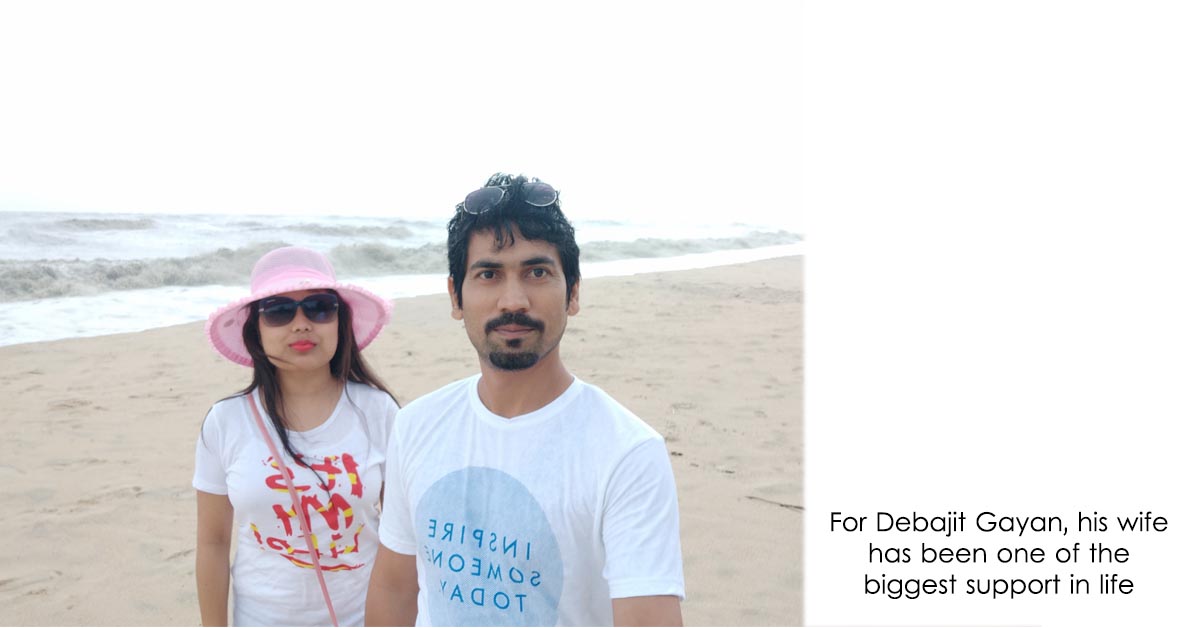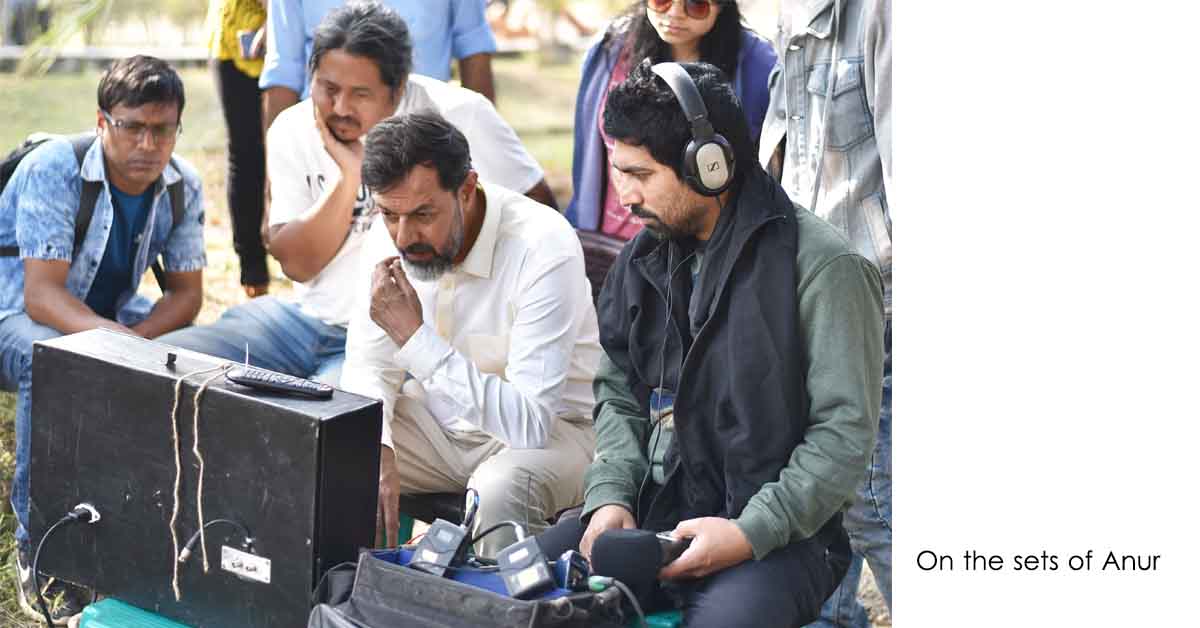
The location of the film was Bada Bazar- a market in Shillong, which in Khasi is called Iewduh. The film was entirely shot in this single location only
Debajit Gayan is a leading sound designer from the northeast, who won the Best Audiography (Location Sound Recordist) in the 67th National Film Awards for the Khasi film Iewduh.
Directed by Pradip Kurbah and produced by Shankar Lall Goenka, Iewduh also won the award for the Best Khasi Film.
Debajit Gayan is a popular name in Assam and the northeast when it comes to sound design.
He has worked in several films and documentaries and the national award is expected to only open more windows for him for the future to various projects beyond the northeast.
In conversation with Utpal Datta, Debajit Gayan opens up and speaks in details as to how was the sound of Iewduh took shape.
Utpal Datta: Congratulation Debajit for the national recognition. This has established the talent from the Northeast on a national platform.
Debajit Gayan: Thank you Dada.
Utpal Datta: According to you, what was unique about Iewduh that landed you with the national award?
Debajit Gayan: The location of the film was Bada Bazar- a market in Shillong, which in Khasi is called Iewduh.
The film was entirely shot in this single location only, with around 80 per cent being shot outdoors and the remaining 20 per cent was shot indoors inside a house situated in the same market.
In such a location, recording of sync sound was a major challenge. The challenge was to record the dialogues with required clarity in a crowded market along with all the ambient noise and sounds and noises related to the movements of the actors.
The challenge became harder for the unexpected sounds. In this sync sound process, our priority focus remains on the dialogues.

I must record the words with desired clarity. We have recording options for the environmental sounds as we can arrange one more or multiple recordings for these sounds, but for dialogues- we don’t have any option.
Clear sounds of dialogues help the sound post-production works. For example, an actor is speaking something to another actor, suddenly a sharp noise comes and kills the clarity of the dialogue. This sound will ruin the entire scene.
Utpal Datta: In a market, such sounds are natural, if the dialogue is disturbed, the actor will repeat the dialogue and that is natural.
Debajit Gayan: That's true, but the recording devices are so sensitive that they capture sounds of several frequencies, which we can normally pick up. Hence, the recorded sound may differ from the sound which we listened to normally. So we cannot depend on human listening. I hope, you got my point.
Utpal Datta: Thanks for the explanation. But I feel, you had the required instruments and you are experienced and competent enough to handle these technical things. Then, from where did the challenge come?
Debajit Gayan: The most important thing is to record drama in a sync-sound process we need a controlled environment as the first requirement.
We had the market, that fits the vision of the director. But we did not have that control we required. That was the creative challenge.
Utpal Datta: A director conceives the images and sound is the soul of a shot. So, I presume that a director and a sound engineer must have a clear understanding of the desired effect.
Debajit Gayan: Very true. A director visualises his film, and the technical team helps him in creation. So, a clear understanding is essential among all the workers. The entire team will march towards a single goal. A slight difference in understanding may spoil the journey.
Utpal Datta: How was your understanding with the director Pradip Kurbah?
Debajit Gayan: I have also worked with him in his previous film Onatah. I did the sync sound for the film.
I satisfied him with my work and he offered me this film. Before the shooting for Iewduh began, we visited the location together several times and tried to understand the various soundscapes of the locality.
I must add here that our known sound designer was also present with us and he shared some valuable inputs. He also did the sound designing of the film.
Utpal Datta: And the result of your hard work reached a destination. Congratulations once again. Would love to meet you once again at your work.
Debajit Gayan: Sure Dada, definitely we will meet and it will be an honour for me.
